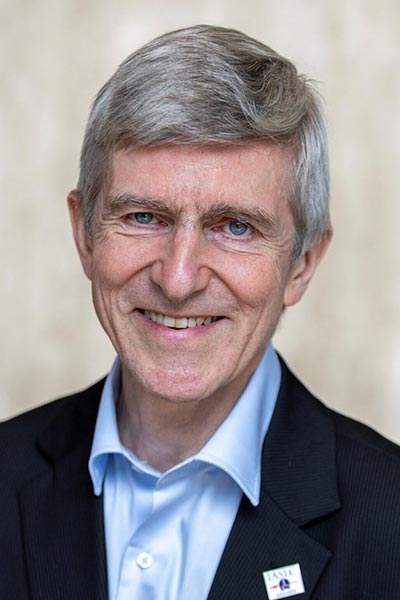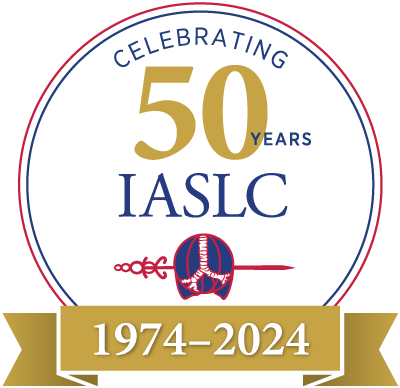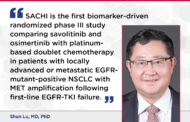Targeted therapies are among the hottest and most successful therapeutic approaches to lung cancer. The second of two Presidential Symposia taking place during the 2024 World Conference on Lung Cancer is devoted to this therapeutic area, which barely existed 20 years ago.

“Most of the newest targeted therapies are TKIs—tyrosine kinase inhibitors,” said IASLC President Paul Van Schil, MD, PhD, Professor in Thoracic and Vascular Surgery at Antwerp University Hospital, Antwerp, Belgium. “Much of the new data we will present relate to specific mutations in non-small cell lung cancer plus an abstract on targeted therapy with chemoradiotherapy. These data are of interest to every specialty in lung cancer and can be applied to daily practice as soon as we all get back to the clinic.”
There were so many high-scoring late-breaking abstracts submitted this year that the WCLC Program Committee scheduled two Presidential Symposia rather than the single symposium attendees have come to expect. Adding a second symposium allows for more presentations as well as for more time for questions from both in-person and virtual audiences, Dr. Van Schil said.
The second Presidential Symposium runs from 08:30–10:00 PDT on Monday, September 9, in the Plenary Hall at the San Diego Convention Center. The session will be livestreamed and also will be available on demand for all registered WCLC 2024 attendees.

08:30-10:00 PDT, Monday, September 9
Plenary Hall, San Diego Convention Center
Presidential Symposium 2
The second of two Presidential Symposia will include the presentation of five of the highest-rated targeted therapy abstracts submitted for WCLC 2024.
Dr. Van Schil said while targeted therapies may not directly impact his own surgical practice, he was particularly intrigued by the results presented in Aumolertinib Maintenance after Chemoradiotherapy in Stage III Non-Small-Cell Lung Cancer: Interim Results of the Phase III Study (POLESTAR). Patients in the trial were unresectable, which puts it outside Dr. Van Schil’s direct area of expertise, but he said the results offer hope for many individuals with EGFR-mutated non-small cell lung cancer (NSCLC) who may not be good candidates for surgery.
“Progression-free survival was significantly better after chemoradiation in the aumolertinib arm,” Dr. Van Schil said. “The median progression-free survival rate was also better for the experimental arm. For patients with EGFR mutations, this could reduce the number of recurrences after chemoradiation.”
The other abstracts to be presented deal with other locally advanced or metastatic NSCLC subtypes with specific mutations, including:
- Safety and Efficacy of BAY 2927088 In Patients with HER2-Mutant NSCLC: Expansion Cohort from the Phase I/II SOHO-01 Study
- Primary Phase Ib Analysis of Beamion LUNG-1: Zongertinib (BI 1810631) in Patients with HER2 Mutation-Positive NSCLC
- FURTHER: A Global, Randomized Study of Firmonertinib at Two Dose Levels in TKI-Naive, Advanced NSCLC with EGFR PACC Mutations
- Osimertinib With or Without Savolitinib as 1L in De Novo MET Aberrant, EGFRm Advanced NSCLC (CTONG 2008): A Phase II Trial
“It is important in thoracic oncology, and especially with lung cancer, to see the full spectrum, from screening to treatment, the newest in immunotherapy and targeted therapy, whatever your specialty,” Dr. Van Schil said. “We all need to know the real advantages of different treatment approaches and the newest data. We can all go home with fresh ideas that will probably change the way we practice.”





